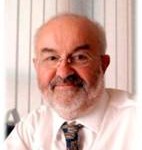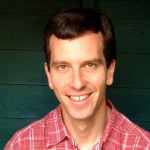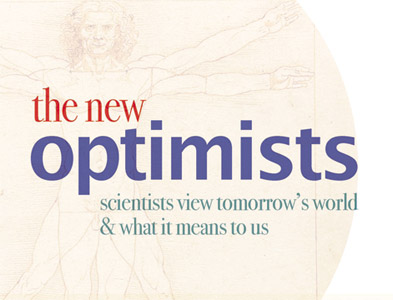Living in the natural world
June 15th, 2010
 Dr Sue Charlesworth proposes a simple but radical transformation of the urban scene. The incorporation of sustainable drainage (SUDS) into the cityscape could provide a flexible and efficient means of mitigating and adapting to climate change.
Dr Sue Charlesworth proposes a simple but radical transformation of the urban scene. The incorporation of sustainable drainage (SUDS) into the cityscape could provide a flexible and efficient means of mitigating and adapting to climate change.
Dr Charlesworth is Reader in Urban Geography at Coventry University. She began her career as a Medical Laboratory Technician, then took at OU degree followed by a PhD investigating the sediments collecting in urban lakes and rivers.This began her research interest in sustainable drainage (SUDS), an applied multidisciplinary area of work involving engineers, town planners, social scientists, ecologists and pure scientists.
Tags: climate change, coventry university, SUDS, sue charlesworth, sustainable drainage
Posted in Living in the natural world, People, The Macrocosm | No Comments »
June 15th, 2010
If a financial value were placed on the environment, then it would be established as a national and global resource at a time when capitalist markets drive societies. But how to do this is a different matter, argues Veronica Lawrie, a professional ecologist working for a commercial enterprise, the global consultancy Atkins and a member of the Institute of Ecology and Environment Management WM Committee.
In reality, how do you assign a figure to a species, or a habitat, or an ecosystem? What really is the financial value of crop pollination by bees? Is it the sum of the honey, vegetable and fruit market values? Or should we take into account that fact that without bees to pollinate our crops, we will starve within a few years?
Tags: ecology, ecosystems, veronica lawrie
Posted in Living in the natural world, People, The Macrocosm | No Comments »
June 15th, 2010
 Urban ecosystems are important for two major reasons, says Dr Lucy Bastin of Aston University. First, the urban environment is where most people spend most of their time, Secondly, urban areas have a huge undervalued resource in all those scruffy patches of derelict land; biodiversity on urban brownfield sites is often surprisingly impressive.
Urban ecosystems are important for two major reasons, says Dr Lucy Bastin of Aston University. First, the urban environment is where most people spend most of their time, Secondly, urban areas have a huge undervalued resource in all those scruffy patches of derelict land; biodiversity on urban brownfield sites is often surprisingly impressive.
Dr Bastin is a lecturer in GIS (Geographical Information Systems) at Aston University. She applies spatial analysis techniques to health, environmental and socio-demographic research challenges. She started out working for the Birmingham Urban Wildlife Trust, and then studied for a BSc in Zoology (Nottingham) and a PhD in the population ecology of urban plants (Birmingham). She has also worked as a researcher on fuzzy classifications of satellite imagery, and spent several years as a senior software developer at Tadpole-Cartesia.
Tags: Aston University, lucy bastin, population ecology, urban ecology
Posted in Living in the natural world, People, The Macrocosm | No Comments »
June 15th, 2010
 Plant evolution may hold the key to a new generation of food resources, according to Dr Juliet Coates who runs the Coates Lab at the University of Birmingham.
Plant evolution may hold the key to a new generation of food resources, according to Dr Juliet Coates who runs the Coates Lab at the University of Birmingham.
Understanding plant evolution, how plants got to the way they are, remains one of the most seriously under-investigated areas of modern biology. It’s important we do know because growing enough crops in the right places to sustain the world’s population is becoming increasingly challenging. Many of the new scientific tools that enable us to understand how bacteria, yeasts and animals work at the molecular level, including genetic engineering, can now be used to understand plant biology too.
In Dr Coates’ research group, they try to understand at the molecular level how plant cells integrate information to form a many-celled plant with specific tissues and a certain form. They focus particularly on the development of the root system, and certain families of proteins that control it. They also study “ancient†land plants that they hope will tell us more about how more complex plants evolved. They collaborate with other research groups that work on root development and with groups that study relatives of our plant proteins that control the life cycle of the malaria parasite.
Tags: biosciences, coates lab, crops, juliet coates, plant evolution, plants, University of Birmingham
Posted in Living in the natural world, People, The Macrocosm | No Comments »
June 15th, 2010
 If we are to meet the targets set by Government, we need to reduce vehicle emissions dramatically and as a matter of urgency, so says Julia King who led HM Treasury King Review and is on the Committee for Climate Change.
If we are to meet the targets set by Government, we need to reduce vehicle emissions dramatically and as a matter of urgency, so says Julia King who led HM Treasury King Review and is on the Committee for Climate Change.
Professor King, Vice Chancellor of Aston University, is an engineer with over 160 published papers on fatigue and fracture in structural materials, and developments in aerospace and marine propulsion technology. She has held a number of senior posts in both industry and academia.
After sixteen years as an academic researcher and university lecturer at Cambridge and Nottingham universities, Julia King joined Rolls-Royce plc in 1994. At Rolls-Royce she held a number of senior executive appointments, including Director of Advanced Engineering for the Industrial Power Group, Managing Director of the Fan Systems Business, and Engineering Director for the Marine Business.  In 2002 Julia became Chief Executive of the Institute of Physics, and in 2004 she returned to academia as Principal of the Engineering Faculty at Imperial College, London. In December 2006 she became Vice-Chancellor of Aston University.
Tags: Aston University, Climate Change Committee, engineering, HM King Review, julia king, rolls royce
Posted in Living in the natural world, People, The Macrocosm | No Comments »
June 15th, 2010
 Providing everyone on the planet with sufficient energy and water is an unprecedented challenge, which will only increase with a growing population unless we find new ways of meeting this challenge. One solution, says Andreas Hornung, Professor of Chemical Engineering at Aston University, is to use biomass residue (e.g. waste wood, sewage sludge, et al) as an energy source.
Providing everyone on the planet with sufficient energy and water is an unprecedented challenge, which will only increase with a growing population unless we find new ways of meeting this challenge. One solution, says Andreas Hornung, Professor of Chemical Engineering at Aston University, is to use biomass residue (e.g. waste wood, sewage sludge, et al) as an energy source.
Professor Hornung, who is also Head of the European Bioenergy Research Institute, has major research interests in pyrolysis processes from micro-scale to technical application, and in the thermo-chemical treatment of biomass.
Tags: andreas hornung, Aston University, biochar, biomass, chemical engineering, engineering
Posted in Living in the natural world, People, The Macrocosm | No Comments »
June 15th, 2010
 We live in a finite world with finite resources, Professor Tony Bridgwater reminds us. But there are three fundamental sources of renewable energy — the sun, the tides and heat from the earth itself. Biomass captures about three thousand EJ (exajoule) per year through photosynthesis; the future for biomass is wide open.
We live in a finite world with finite resources, Professor Tony Bridgwater reminds us. But there are three fundamental sources of renewable energy — the sun, the tides and heat from the earth itself. Biomass captures about three thousand EJ (exajoule) per year through photosynthesis; the future for biomass is wide open.
Tony Bridgwater is Professor of Chemical Engineering at Aston University , where he leads the Bioenergy Research Group (BERG). His current research interests are on the development of technologies for fast pyrolysis of biomass, and the production of biofuels and chemical products that can be derived from biomass and from the fast pyrolysis liquids. He is Technical Director of the SUPERGEN Bioenergy Consortium supported by the EPSRC, and contributes to several EC sponsored research projects including Dibanet, Biosynergy, Bioenergy Network of Excellence, Bioliquids CHP and Bioref-Integ. He was awarded the European Johannes Linneborn Prize in 2007 for his outstanding contribution to developing energy from biomass, and the North American Don Klass Award for Excellence in Thermochemical Science in 2009.
Tags: Aston University, biomass, chemical engineering, engineering, tony bridgwater
Posted in Living in the natural world, People, The Macrocosm | No Comments »
June 14th, 2010
 Over the past decade, our ability to precisely measure the dimensions of the eye have greatly improved. This means that optometrists can now make much more accurate calculations for the optimum intracular lens (IOL) power to implant. So explains Professor James Wolffsohn in The New Optimists, also making the point that such technologies could revolutionise people’s lives in developing countries where affordable spectacles are difficult to come by.
Over the past decade, our ability to precisely measure the dimensions of the eye have greatly improved. This means that optometrists can now make much more accurate calculations for the optimum intracular lens (IOL) power to implant. So explains Professor James Wolffsohn in The New Optimists, also making the point that such technologies could revolutionise people’s lives in developing countries where affordable spectacles are difficult to come by.
Professor Wolffsohn is one of the world’s leading researchers in optometry and Deputy Executive Dean for the School of Life and Health Sciences at Aston University.
His research and teaching interests mainly revolve around intraocular lenses, contact lenses, low vision and the measurement of accommodation, having published over 90 peer reviewed academic papers and given numerous international presentations. He is also a past President of the British Contact Lens Association. He has recently published the Low Vision Manual with Professor Jonathan Jackson and an Eye Essentials Series book Imaging.
Tags: Aston University, health sciences, intraocular lenses, james wolffsohn, vision
Posted in Living in the natural world | No Comments »
June 14th, 2010
 Dr Karim Raza co-authored the essay Rheumatoid Arthritis — does time matter? with Chris Buckley and Andrew Filer in the book The New Optimists.
Dr Karim Raza co-authored the essay Rheumatoid Arthritis — does time matter? with Chris Buckley and Andrew Filer in the book The New Optimists.
Dr Raza is a senior lecturer in the Division of Immunity and Infection at the University of Birmingham and a consultant rheumatologist at Sandwell and West Birmingham Hospitals NHS Trust.
He combines his clinical work with an active research programme in the field of rheumatoid arthritis and in particular the earliest phase of this disease. His work addresses approaches to the prediction of outcome in early inflammatory arthritis, approaches to the treatment of early rheumatoid arthritis and mechanisms of joint inflammation.
Posted in Living in the natural world | No Comments »
 Dr Sue Charlesworth proposes a simple but radical transformation of the urban scene. The incorporation of sustainable drainage (SUDS) into the cityscape could provide a flexible and efficient means of mitigating and adapting to climate change.
Dr Sue Charlesworth proposes a simple but radical transformation of the urban scene. The incorporation of sustainable drainage (SUDS) into the cityscape could provide a flexible and efficient means of mitigating and adapting to climate change.















